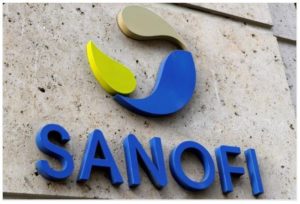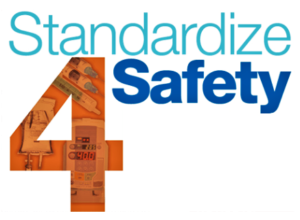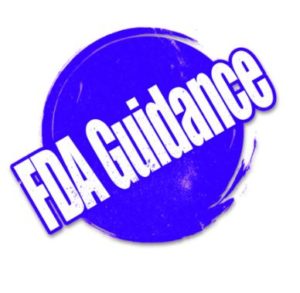- Controversial rating system gives six Nevada hospitals one star (reviewjournal.com)
Five Southern Nevada hospitals were among six statewide that received only one star in a controversial five-star rating system unveiled...by the Centers for Medicare &Medicaid Services....Two Nevada hospitals got four stars: Mesa View Regional Hospital in Mesquite and Renown South Meadows Medical Center in Reno...The ratings, which use stars to denote the overall quality of hospitals, are meant to "help individuals, their family members and caregivers compare hospitals in an easily understandable way,"...The results, available on the Hospital Compare portion of the Medicare website, have been met by opposition by many hospitals locally and across the country who say the ratings use unreliable information and punish teaching facilities as well as hospitals that serve low-income patients...The five Southern Nevada hospitals receiving one-star ratings were: University Medical Center, St. Rose Dominican Hospitals-Siena Campus, Desert Springs Hospital Medical Center, Valley Hospital Medical Center, and Sunrise Hospital and Medical Center...UMC CEO Mason VanHouweling took issue with the rating system, saying the measure treats all facilities the same, despite differences in the patients they may see..."In other words, the rating system fails to account for unique, multifaceted or high-acuity patients that may come through a trauma, burn or transplant center," he said.
- FDA defines the ability of compounders to make approved medicines (statnews.com)
In its latest (to) bid to set parameters around compounding, the US Food and Drug Administration...issued a pair of draft guidelines to clarify when compounding pharmacies are permitted to make versions of commercially available medicines...federal law currently states that a compounder generally shouldn’t make copies of drugs that are approved for sale, the agency is getting more specific and wants to ensure that a true clinical need exists before a compounded version of an approved medicine drug is made for a patient...A key issue has been the extent to which compounders can make medicines for patients in ways that may cross the line into more conventional drug manufacturing. The new law attempts to create boundaries, although the latest guidelines are designed to refine the FDA interpretation... the guidelines would permit compounders to make versions of brand-name drugs when a shortage exists or the brand-name medicine has been discontinued. Another example meeting the threshold of patient need might be a required change in formulation...But safety is not the only issue in play here. For instance, pointing to a lower price...a compounded version would be cheaper than a brand-name drug — is not justification for compounding an FDA-approved medicine...these are only draft guidelines — guidances in regulatory parlance — and are not set in stone.
- Heavyweight champion of the world (pharmatimes.com)
For more than 15 years NICE has punched above its weight internationally but as it comes under attack for its methodology, will its international clout suffer?...The bad headlines are back; on 20 May, the National Institute for Health and Care Excellence...came under fire from the media for its decision to bar Roche's Perjeta (pertuzumab) for breast cancer from the NHS...While patient groups and charities are worried about the effect on cancer patients in England, who may be denied treatment, there may also be a knock-on effect in other countries, which still look to NICE for guidance over their own reimbursement decisions...NICE International...advises countries from Ghana to Kazakhstan on HTA (health technology assessment) methodology and implementation...Yet, its international spread has come hand-in-hand with the growing disillusionment about NICE's decisions...An IMS Institute study in 2013 compared the reimbursement of cancer drugs in five countries that used cost per QALY (NICE's quality-adjusted life years) methodologies, including the UK, with five using broader methodologies, including Germany and US. It found that the cost per QALY countries reimbursed fewer cancer drugs, had slower access to those they did adopt, and generally performed poorer in terms of cancer outcomes. Moreover, it was not clear that they saved much money.
- Sanofi, Amgen cholesterol drugs win UK backing after price cuts (reuters.com)
Two rival cholesterol-lowering injections from Sanofi and Amgen have been recommended by Britain's healthcare cost watchdog after the manufacturers offered special discounts to the country's state-run health service...Sanofi's Praluent (alirocumab)...and Amgen's Repatha (evolocumab) are both so-called PCSK9 medicines...The National Institute for Health and Care Excellence said in draft guidance on...that both drugs could be considered for use by people whose cholesterol is still not under control despite trying other treatments...It stressed that the medicines would only be cost-effective with the promised discounts...Both drugs cost more than 4,000 pounds ($5,780) per patient a year in Britain. That is already a lot less than their U.S. list price of around $14,000, but Sanofi and Amgen have committed to discount the British price by a further undisclosed amount for the UK National Health Service
- Pharma relying more on non-GAAP accounting and the SEC is noticing (fiercepharma.com)
Valeant Pharmaceuticals got chastised by the SEC this year for its use of non-GAAP (Generally Accepted Accounting Principles) accounting to make its performance look better than it might have actually been, one in a long list of issues that are dogging the company. But Valeant is far from the only pharma company playing a little loose with the rules and the trend is getting worse, even as investors and the SEC are watching more closely...GAAP accounting was developed so investors can get an apples-to-apples comparison of how companies are doing quarter to quarter and year after year. But some companies are not all that crazy that the rules make it harder to make themselves look good to investors. Companies have been using non-GAAP measurements, sometimes on individual line items, and the SEC has been taking note...the SEC updated guidance on the use of non-GAAP reporting, detailing how it should and--more importantly--shouldn’t be used...
- Brexit spells upheaval for EU and UK drug regulation (reuters.com)
Britain's vote to leave the European Union spells regulatory uncertainty for drug companies, with the London-based European Medicines Agency, which approves treatments for all EU countries, expected to have to relocate...The association of Germany's pharmaceuticals industry said on Friday that Europe's equivalent of the U.S. Food and Drug Administration would need to move to a city within the EU...EMA...said it was premature to comment on its future...It is too early to foresee the implications of this decision and at this stage we are waiting for further guidance from the European Commission...Drug companies and healthcare officials in Sweden, Denmark, Italy and Germany have all expressed interest in hosting the EMA instead of London, since firms in these countries are keen to be located close to the region's...The pharmaceuticals industry employs more than 70,000 people in the UK and accounts for 25 percent of all business research and development spending in the country...Many scientists are concerned that funding for academic research, which has been well supported by the EU in recent decades, will now be jeopardized, along with important UK-European research collaborations...
- 70 Groups Call on FDA to Revert Back to Meaningful Suffixes for Biosimilar Names (raps.org)
The fight over how biosimilars should be named in the US isn’t over yet despite the Food and Drug Administration’s use of a non-proprietary name with a random suffix for the second approved biosimilar and plans to do the same for all future biosimilars...The group of nonprofits and other stakeholders, spearheaded by the Alliance for Safe Biologics, requested in a letter that FDA use meaningful suffixes for biosimilar non-proprietary names, such as the one used with the first biosimilar approval for Zarxio (filgrastim-sndz). The group said meaningful suffixes are preferable to the random suffixes described in the FDA’s draft guidance on biosimilar naming...In that draft guidance, FDA said the meaningless suffixes will help prevent inadvertent substitution (which could lead to medication errors) of biologics that are not determined to be interchangeable by the FDA..."Meaningful suffixes are easier for patients, providers and pharmacists to both recognize and remember, thus facilitating accurate association between adverse events and specific products."
- Medication Standardization Effort Aims to Improve Patient Safety (ashp.org)
...the reason a pharmacy prepares a specific concentration of an i.v. or oral liquid medication has little to do with clinical or patient safety considerations...the pharmacy staff follows standard recipes because "they've always done it that way," said Pasko, director of ASHP's Center on Medication Safety and Quality and principal investigator for ASHP's Standardize 4 Safety campaign...Pasko hopes the campaign will change that mindset and result in consistency, at the national level, in how i.v. and oral liquid admixtures are formulated for patient use..."We're really trying to emphasize to everyone that this is a patient safety effort,"..."We're putting patients at risk every day when we dispense a different concentration than what someone else does."...Standardize 4 Safety has put together an interprofessional panel of experts to propose voluntary, evidence-based standardized concentrations for 32 i.v. medications associated with a high risk of patient harm due to dosage errors...ASHP has urged pharmacists to get involved with the Standardize 4 Safety community through its online communication platform on ASHP Connect...
- Drugmakers can’t charge beyond making costs for compassionate use: FDA (reuters.com)
Food and Drug Administration said companies could only charge patients for the cost of manufacturing experimental treatments used under compassionate grounds, and it cannot force government or private health insurers to pay for these drugs..."Compassionate use" of experimental drugs allows physicians to prescribe unapproved treatments for patients who have no other satisfactory alternatives in the market...The FDA's move seems to be intended to soften the repercussions of its possible rejection of Sarepta Therapeutics Inc's muscle-wasting drug (Duchenne muscular dystrophy)...FDA last week deferred its decision on whether to approve Sarepta's drug, eteplirsen, after an advisory panel determined that the treatment was not effective...The FDA is trying to create a compromise, saying drug companies can charge for a drug even if its not approved...Sarepta's drug has been in the spotlight over the past few months with patient groups and parents arguing passionately in favor of the treatment to pressure the regulator to approve the drug.
- FDA Advises Against Fluoroquinolone Antibiotic Use for Uncomplicated Infections (pharmacytimes.com)
Serious side effects associated with fluoroquinolones generally outweigh the antibiotics’ benefits for patients with uncomplicated infections like sinusitis and bronchitis…the FDA determined that systemic use of fluoroquinolones is associated with "disabling and potentially permanent serious side effects that can occur together" involving the tendons, muscles, joints, nerves, and central nervous system...The alert comes a year after the FDA convened an advisory committee to review the risk-benefit balance for fluoroquinolones...the risk wasn’t worth the potential benefit for patients with sinusitis, bronchitis, and uncomplicated urinary tract infections, for which other treatment options exist...Labels and medication guides for all fluoroquinolones will be updated to reflect the FDA’s findings...










